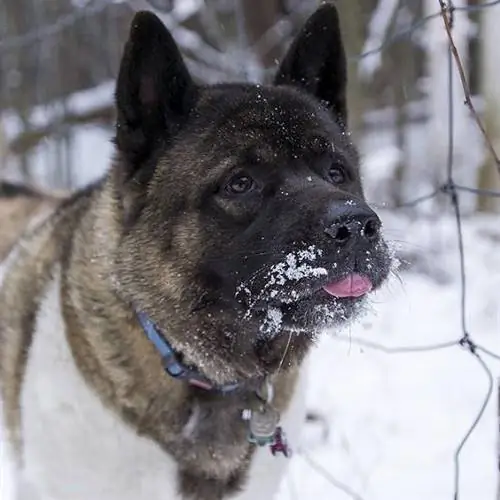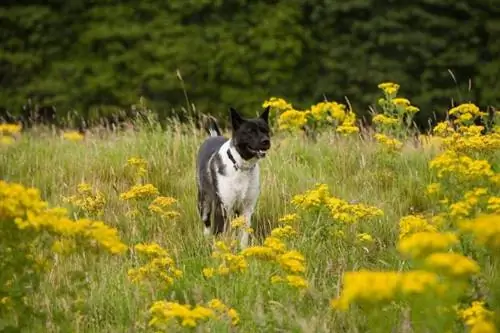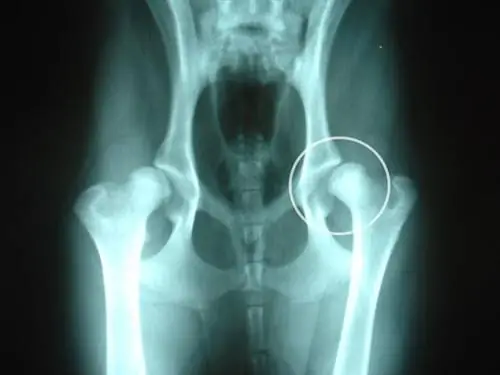- Author Carl Johnson johnson@fascinatesanimals.com.
- Public 2023-12-16 06:19.
- Last modified 2025-01-23 08:59.

The American Akita is a dog that falls in love due to its great loy alty and fidelity. Few canine breeds will show as much devotion to their human family as this dog, which also has equally striking physical characteristics due to its robust structure.
Fostering an American Akita is a great responsibility that requires enough time to provide him with an adequate education, but it is also important that the owner is informed about the pathologies that can most frequently affect this breed, to know how to act appropriately if necessary.
In this article on our site we talk about the most common diseases of the American Akita.
The he alth of the American Akita
The American Akita is a very robust and strong dog, whose average life expectancy is around 9-10 years. However, if we provide him with the care he needs, it may not only be that beyond this age, but you will enjoy a he althy old age, it is important to offer a good quality of life
The he alth of the American Akita should also be based on optimal nutrition, proper veterinary monitoring and sufficient physical exercise.

Hip dysplasia
Hip dysplasia can affect any dog but especially large breed dogsIt is a pathology that prevents the proper development of the hip joint during growth, it moves to the sides and over time affects movement.
Because of this malformation, the dog will have difficulty performing its daily activities, experiencing pain and sometimes lameness. It is a hereditary disease therefore it is important that the kennel issue you a certificate confirming that the parents of the dog you adopt do not suffer from this pathology.
To prevent the American Akita from developing hip dysplasia, it is important that it avoids sudden movements and exercises until it reaches one year of age. However, once our dog develops this disease, it must continue to exercise to avoid muscle atrophy. Discover what are the exercises for dogs with hip dysplasia.

Eczema
Due to the coat of the American Akita, this breed is prone to eczema, that is, an inflammation of the skin or dermatitis characterized by intense itching. During the shedding season our Akita is more susceptible to this skin condition, but we can prevent it in a simple way if we brush his coat daily during the fall and spring.
In addition, in this way, in the case of observing abnormalities in its skin, we can treat it quickly with the help of topical anti-inflammatories that must always be prescribed by the veterinarian. A quick treatment of eczema will ensure normal, uncomplicated shedding.
Stomach twist
Stomach torsion most often affects large and purebred dogs, with fatal consequences if not treated in time, since the mortality rate in untreated dogs is 100% and in treated dogs it is 38%.
Torsion occurs when the stomach dilates due to the accumulation of gases, then the ligaments that support it fail and there is a torsion in the intestine that blocks the blood supply.
The truth is that we can slightly prevent stomach torsion by taking care of our dog's food intake: you should never offer him food before the walk, but after. Seeking a quality diet, eating slowly are others
The symptoms shown by a dog with stomach torsion are as follows:
- The dog is restless, looking at the ground or at his stomach
- Pain and swelling in the abdominal area, which sounds like a drum if struck
- Nausea with inability to vomit
If we suspect that our dog suffers from this condition, we should Go urgently to the vet, since the sooner he receives care, the greater the chances that he survives






